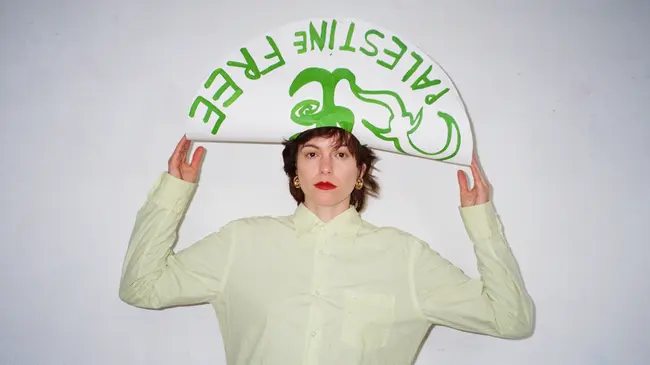I think about sounds as sculptures

Swedish composer Ellen Arkbro brings For Percussion, Strings and Winds to De Singel. The show somewhere between concert and sound installation will be performed by the Ictus Ensemble on 27 April. We met with her to discuss her never-ending and intuitive process of creating. Her unique compositions have been said to leave the audience in a trance, as they can move through the sounds, built up like architecture.
What can you say about For Percussion, Strings and Winds?
I am going to work with musicians from the Ictus Ensemble in Brussels. Meeting with the musicians is a big part of the process and I want them to be involved in creating the piece. So, I have some material that I will bring, but we’ll work on things together, improvise and talk about what we hear. There will be percussion, contrabass, trombone, bassoon and bass clarinet - an ensemble of low instruments.


Is it new for you, to write in this collaborative way?
Yes, for this kind of music. After working with musicians who play my music, I feel like I have much more knowledge about what the instruments sound like together, or what the musicians hear. I make music that’s very much about sound in space, so writing for instruments without being together in the same room doesn’t really make sense. I try more and more to trust that I know how to do this kind of work, to not prepare too much and to know that it can happen together with the ensemble while being in the same space. There’s a Swedish expression for this, it’s called having ice in your stomach.
I make music that’s very much about sound in space
As well at De Singel, there will be a show in Oslo and one in Nantes. Will the show change at all?
Probably, as there are elements of improvisation in the music. Usually, when I write music I start with harmony and chords, that’s the foundation. There will be a percussionist playing in the ensemble and I have not written anything for him yet; I have a very vague idea of a way of playing or a feeling. I imagine that his part will be something that we will work on together, and it will probably change in every iteration of the piece. I never stop working on things. ‘How do I feel about this?’ is the only compass I have and the feeling changes constantly.

Do your feelings change depending on the acoustics, size or atmosphere of the space?
On a practical level, if I’m after a certain sound and texture, I know when it happens and when it doesn’t. The more confusing part can be on a social level. I want to understand everyone’s perspective on things. That can be very confusing as sometimes I don’t know what my own perspective is and I get caught up in understanding everyone else [laughs]. It’s a quality that I work with, as well as struggle with.
Your work seems in one sense very mathematical yet also very intuitive.
In the tuning part, there is mathematics to it, but since I’ve been working for some years in different tuning systems, now it is more of an intuitive process. Adjusting to different situations is more about listening than thinking. One can get caught up in thinking about sound, which I don’t want to do. The idea should be realised into an audible sound. I want to stay with the experience and not get lost in the concepts.
I want to stay with the experience and not get lost in the concepts


I’ve heard your concerts can put the audience in a trance.
Hopefully, they have a strong impact on listeners. When I find these textures that become really dense in space, the chords spread out so they become this complexity that you can move around in. It can be its own experience, moving in sound. To me, it becomes more architectural. I associate it with shapes; I think about sounds like different sculptures. That’s how I think about it, but someone else might experience it differently.
The chords spread out in a way so that they become a complexity to move around in
Is there a space you’d love to do a show in?
The spaces I enjoy working in the most are resonant spaces, not churches but museums, big and bright. That’s usually a context that makes the most sense to me, as my work can become more of a work of art, than music.


This recurring openness and ambiguity seem reflected in the names of your concerts.
I really don’t like coming up with titles for my work. I always feel like it reduces it. How do you have a title without connotations? I need to be very pragmatic about it: these are the instruments, or this is the length of the piece. If you name something before you’ve created the music, it can change the process of your work.
What’s next for you?
Apart from working with Ictus, I'm now writing for the large French ensemble Onceim. I also have a concert with a microtonal tuba trio at Intonal in Malmö this spring. I hope to have some time in the summer to work on some pop music.
Different Class works with the interest of their community at heart.
Our work’s purpose is to foster a solid network for independent artists, those who love them, and those who want to support them. Become a member to contribute to the local Belgian art scene.





